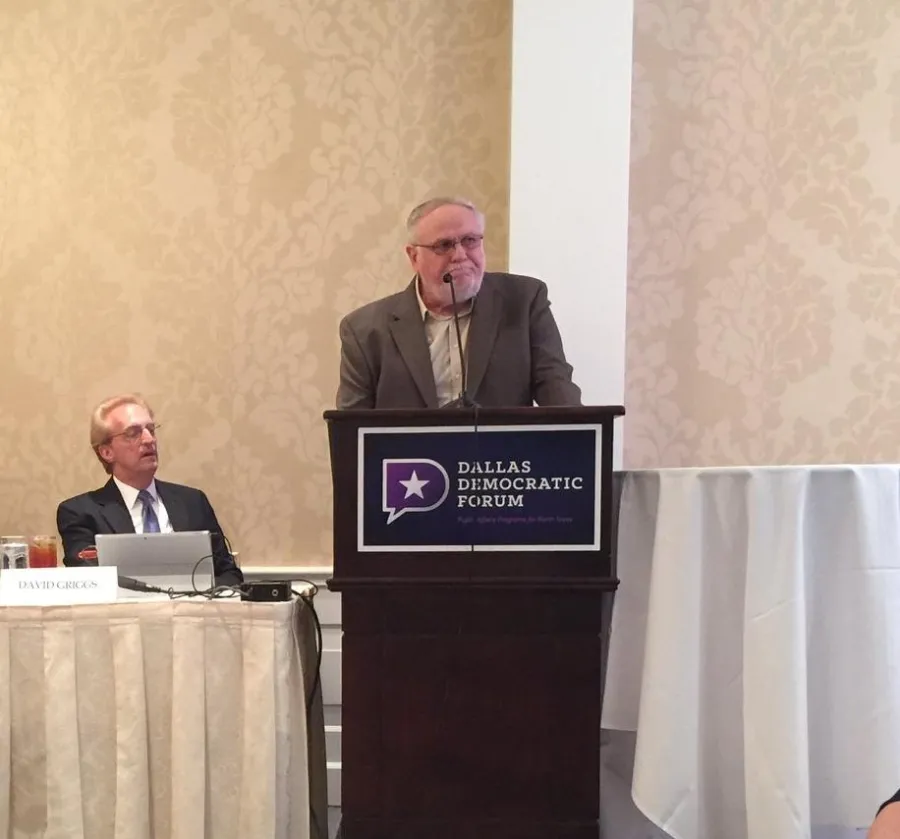
Good morning and thank you for the opportunity to discuss the benefits and demerits of our trade policy in this friendly setting.
Let me preface my remarks by saying that the proposed Trans-Pacific Partnership puts every lawmaker on the spot. Legislators are asked to strike a balance between the known benefits of trade in general and the known problems caused by an ill-considered trade policy.
There is little in the way of a “party line” on the subject. In my observation, the question of trade is one of the least partisan ones in the most partisan Congress of my lifetime. The question of which side you are on does not depend on your political party.
The AFL-CIO has seen strange bedfellows join us in opposition to TPP. And we have seen long-time friends take the opposite stance. Make no mistake: I am a huge fan of President Obama and believe the history books will be very kind to him, but we must agree to disagree on TPP.
TPP is an emotional issue. Voters have rightly expressed so much dissatisfaction with our current free trade policy that both presidential candidates have come out strongly against the Trans-Pacific Partnership. Not many other candidates who are in any political peril have supported it.
Tim Kaine, the Democratic nominee for Vice President, and Mike Pence, the Republican nominee for Vice President, are officially opposing TPP even though they have long histories of support for proposed trade treaties. U.S. Sen. Rob Portman of Ohio, who was for a time George W. Bush’s Trade Representative, decided it was the better part of valor to come out against TPP this year. The issue is so volatile politically that Senate Majority Leader Mitch McConnell has declared the Senate won’t take up the measure in the lame-duck session, when political pressure is at its lowest.
Believe it or not, the AFL-CIO does not oppose trade in principle. But we do not believe in making markets more efficient at the net expense of working people, and we will never apologize to economists, policy-makers or anyone else for standing up for solid, middle-class jobs.
We opposed NAFTA and still believe that it was a loss for our economy and a huge blow to long-term trust in the relationship between workers and employers. That said, TPP makes NAFTA look like amateur hour for the corporate interests that have controlled the trade debate.
We see TPP as a product of, by and for corporations. In the years it took to negotiate the treaty in near-complete secret, corporate lobbyists were the prime movers of the treaty provisions. I am confident that much of the language in TPP would have zero chance of approval under any reasonably democratic process.
For example, can you imagine an American legislator filing a bill to allow Exxon to challenge an environmental regulation outside our court system after losing a legal challenge within our court system? Or to allow a foreign corporation to attack local minimum wage laws? Those kinds of assaults on our laws are precisely what can happen under TPP. Our national sovereignty is at stake. Our ability to write the rules under democratic processes is at stake.
TPP would give corporations an outlet to overturn American laws outside the control of American voters and lawmakers under a private justice mechanism known as investor-to-state dispute settlement (ISDS). That system would allow a stacked bureaucracy to save the day for large corporations that lose their argument under America’s legal system.
TPP includes long lists of topics that are dear to the heart of multi-billion dollar corporate interests, but worse yet, the treaty has been written in a way that allows additional topics to be added outside any American legislative process. Once that treaty is confirmed, it would be a blank check for future corporate mischief.
In a corporate document, you wouldn’t expect labor rights to have priority, and indeed TPP places the right of working people on a dusty high shelf, essentially out of reach. A big part of the reason for this is that the proposed treaty includes nations like Vietnam, Brunei and Malaysia, which make China look like a worker rights haven in comparison. Although TPP has some high-minded language on labor rights, the truth is that the treaty depends heavily on cheap sweatshop labor and is not designed to improve workers’ lives.
The TPP is a threat to “Buy American” regulations and local living wage rules. The TPP is a threat to access to affordable medicines. The TPP does precious little to stop currency manipulation aimed at undermining the benefits of tariff reductions.
But worst of all, the promise of help for displaced workers in trade treaties rarely adds up.
Let me end with a quote from AFL-CIO President Rich Trumka, who said, TPP is “a new low… The Wall Street and Washington elite always tell us that this time will be different. The truth is these trade deals have ripped apart the fabric of our nation. We see the shuttered factories. We visit towns that look like they are stuck in the past. We talk to the workers who lost everything, only to be told they should retrain in another field—but Congress has been slow to fund and authorize those programs. From NAFTA to CAFTA to Korea and now the TPP, these agreements have continually put profits over people. By driving down our wages, they make our economy weaker, not stronger.
Thank you.
